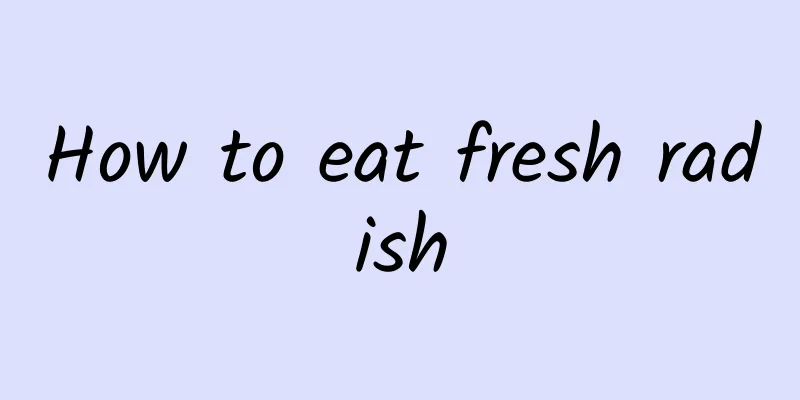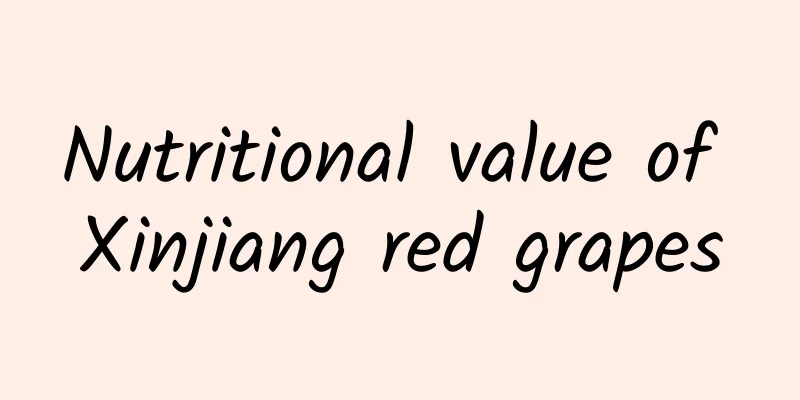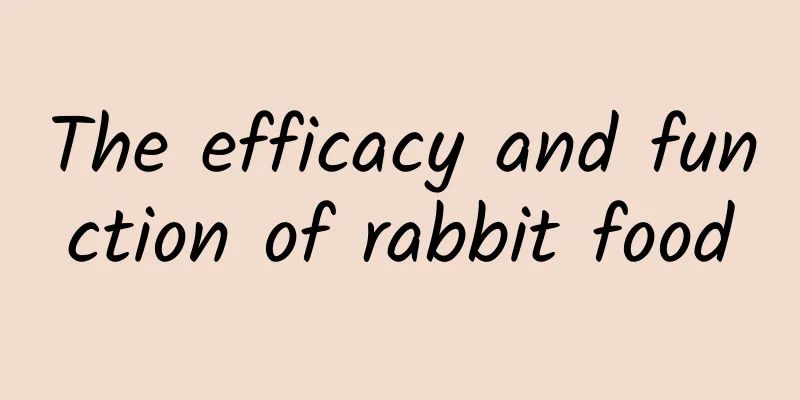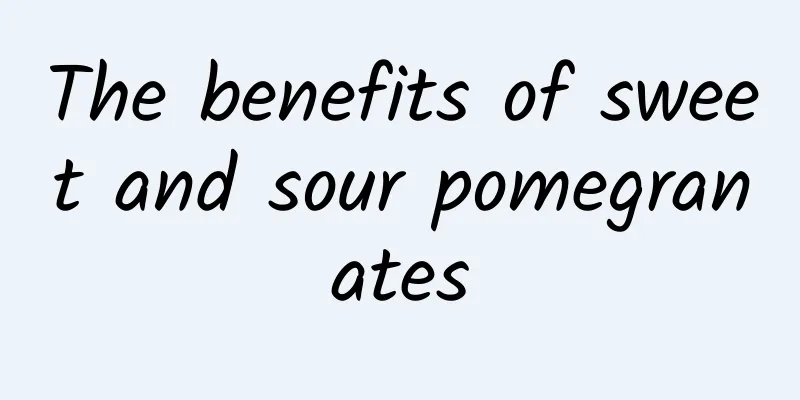What can't be eaten with persimmons?
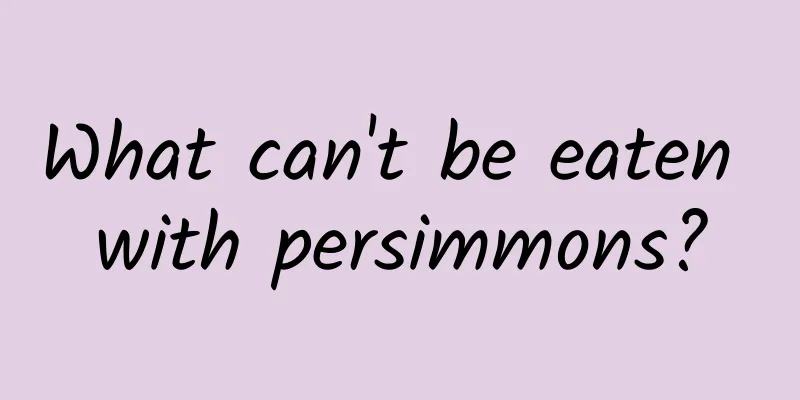
|
Autumn is the season for eating persimmons. Now there is a kind of persimmon that is crisp and sweet. You can eat it with the skin, and it is not astringent at all! I have never eaten it before. I don’t know if it is a new variety, or it has been specially ripened to make it sweet and not astringent even if it does not become soft. Of course, there are soft persimmons. Persimmons have high nutritional value. They contain a lot of carotene, vitamin C, glucose, fructose, and minerals such as calcium, phosphorus, and iron. They are known as the "holy fruit". According to modern scientific measurements, their sugar and vitamin C are 1 to 2 times higher than those of ordinary fruits. Persimmons are not only delicious, but also have high medicinal value. Li Shizhen, a great medical scientist in the Ming Dynasty, said in Compendium of Materia Medica: "Persimmon is the fruit of the spleen, lung and blood. It tastes sweet and has a strong aroma. It is astringent and can astringe, so it has the functions of strengthening the spleen, astringing the intestines, curing cough and stopping bleeding." During the processing of persimmon cakes, a white frost is produced on the surface, commonly known as "persimmon frost", which is known as the "essence of persimmon". It is rich in mannitol, glucose, fructose and sucrose. It is not only a precious food but also a rare medicine. It is used to treat lung heat and dry cough, dry throat and sore throat, mouth sores, vomiting blood and coughing up blood, etc., with very good results. What shouldn’t be eaten with persimmons?1. Do not eat on an empty stomach: Because persimmons contain tannins, the content is less than 1% when ripe, but can reach 25% when unripe. At the same time, persimmons also contain gum and pectin. When eating a large amount of persimmons on an empty stomach, especially unripe or unpeeled persimmons, the tannins and pectin contained in them can react with gastric acid to form water-insoluble clots and deposit in the stomach. Under the mechanical action of the stomach, they form lumps, which are so-called persimmon gastric stones. 2. Seafood and seaweed (such as fish, shrimp, crab, seaweed, kelp, seaweed): Vomiting, bloating, abdominal pain, diarrhea, etc. will occur. Because persimmons contain tannic acid, when they encounter nutrients such as protein and calcium that are rich in aquatic products, they will precipitate and solidify, forming substances that are difficult to digest. At the same time, tannic acid also has a sword-astringing effect, which can inhibit the secretion of digestive juices, causing solidified substances to remain in the intestines for a long time, thereby causing fermentation. Therefore, after eating seafood, you should wait for more than 4 hours before eating persimmons. 3. Sweet Potato: Sweet potatoes contain tannins and colloids, which can stimulate the stomach wall to secrete gastric acid, causing discomfort such as heartburn; sweet potatoes contain gastrointestinal enzymes, which can also cause heartburn, acid vomiting, bloating and flatulence after eating. If you eat persimmons after eating sweet potatoes, precipitates will form under the action of gastric acid. The precipitates will form water-insoluble gastric stones together, which are difficult to digest and excrete. People with chronic gastritis, delayed gastric emptying, indigestion and other low gastric motility functions, and those who have undergone subtotal gastrectomy should not eat persimmons. Persimmons have a high sugar content, so diabetics should not eat them either. 4. Wine: It is said that you should not eat persimmons before, during or just after drinking alcohol to avoid poisoning or physical discomfort. Eight things not to do when eating persimmonsIt is not advisable to eat too many unripe persimmons, eat persimmons on an empty stomach, eat persimmons when you are overworked or tired, eat persimmons with vegetables and other foods high in fiber, people with chronic gastritis, indigestion and other poor stomach function should not eat persimmons, people who have had a subtotal stomach removed should not eat persimmons, and people with diabetes should try to eat less persimmon peel when eating persimmons. |
<<: What is the nutritional value of persimmon and what are the benefits of persimmon
>>: Eating persimmons after meals can relieve cough
Recommend
Nutritional value and cooking methods of horse meat
As people's living standards improve, meat in...
What are the harms of eating betel nut?
Betel nut is a very common snack in the south. Ma...
How to make jujube juice? How to make jujube juice at home
The jujube is a species of plant in the Rhamnacea...
What is seaweed? What are the benefits and effects of eating seaweed?
Have you ever seen seaweed? Do you know what it i...
How is Everland? Everland reviews and website information
What is EverLand? EverLand is a famous theme park ...
How is WaterBaby_Coppertone? WaterBaby_Coppertone review and website information
Water Babies_What is Coppertone? Coppertone is an ...
How to eat cheese? Tips on how to eat cheese well
Cheese is a fermented dairy product. It is very s...
What should not be eaten with prawns? What should not be eaten with prawns?
Prawns are the most common aquatic ingredient in ...
The efficacy and function of bergamot essential oil and the taboos of bergamot essential oil
Bergamot is a beautiful ornamental plant and also...
What are the side effects of snow lotus fungus?
What is snow lotus fungus? Many people don’t know...
What is Qigan? What are the effects and hazards of Qigan?
Many people have never heard of Qigan, nor do the...
How is the German KBA company? German KBA company reviews and website information
What is the website of Koenig & Bauer AG? Koen...
What can't be eaten with mutton? What is incompatible with mutton?
Mutton is the most commonly eaten meat ingredient...
Piper serrata porridge
What I am about to introduce to you is some knowl...
How to dry orange peels How to use dried orange peels
Many people know that orange peel is an important...
